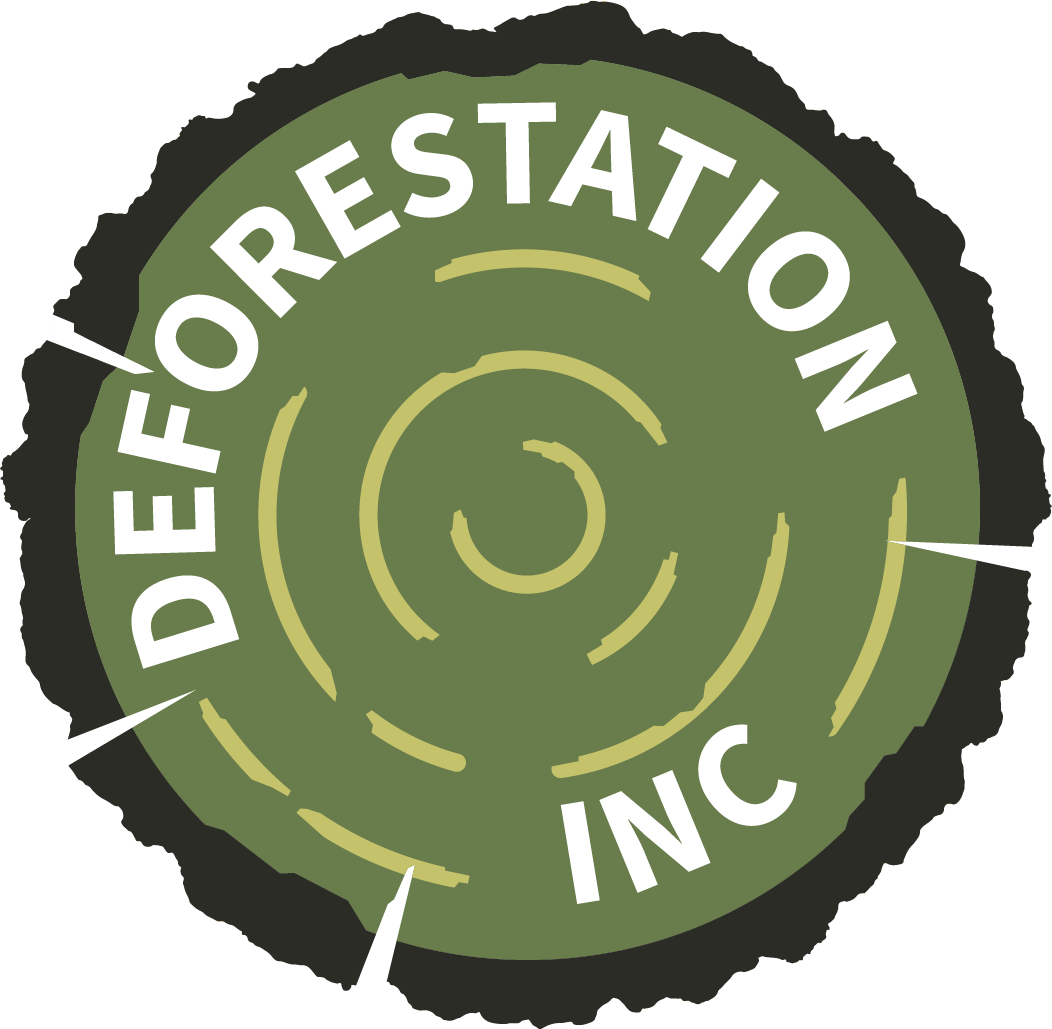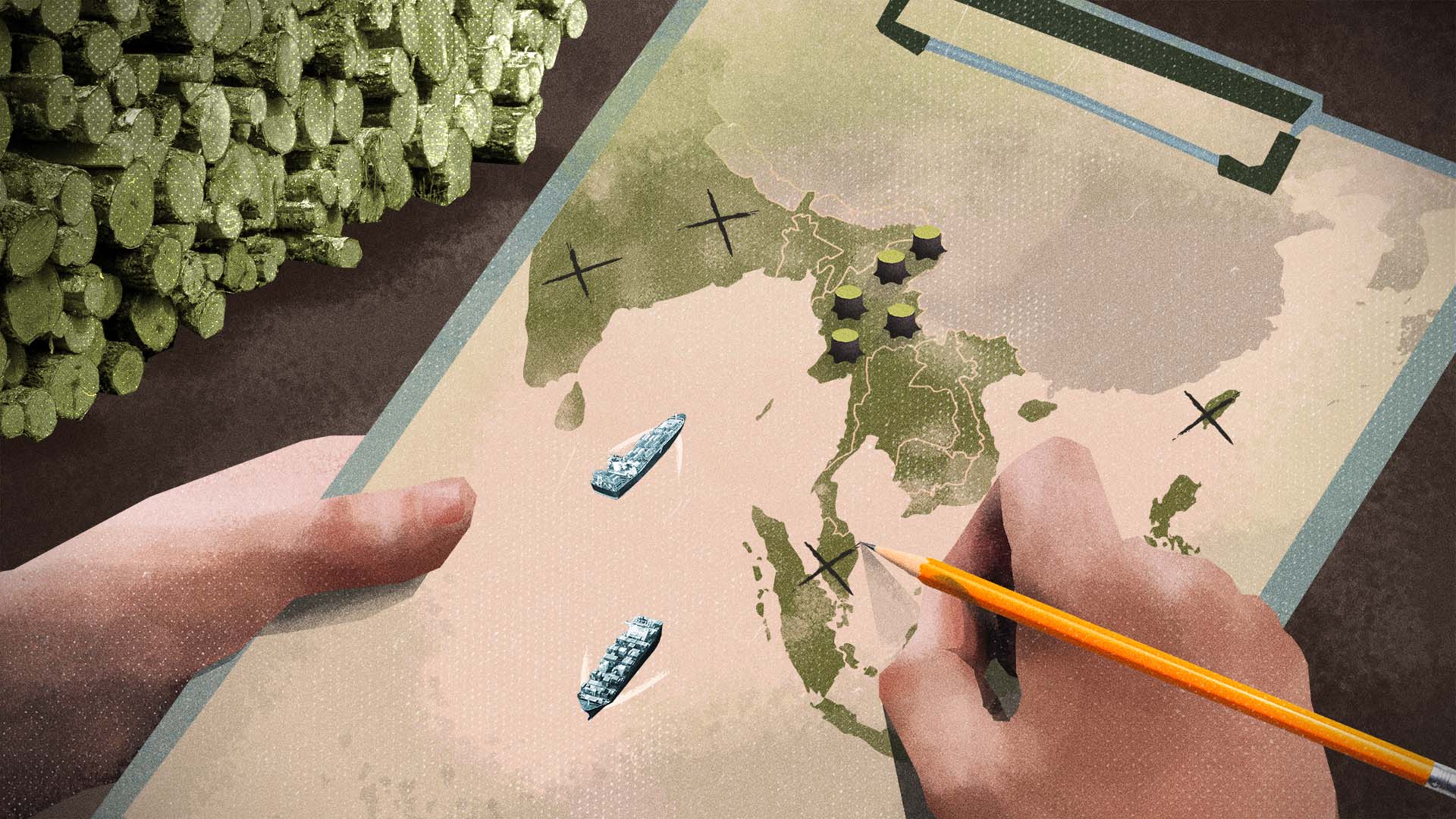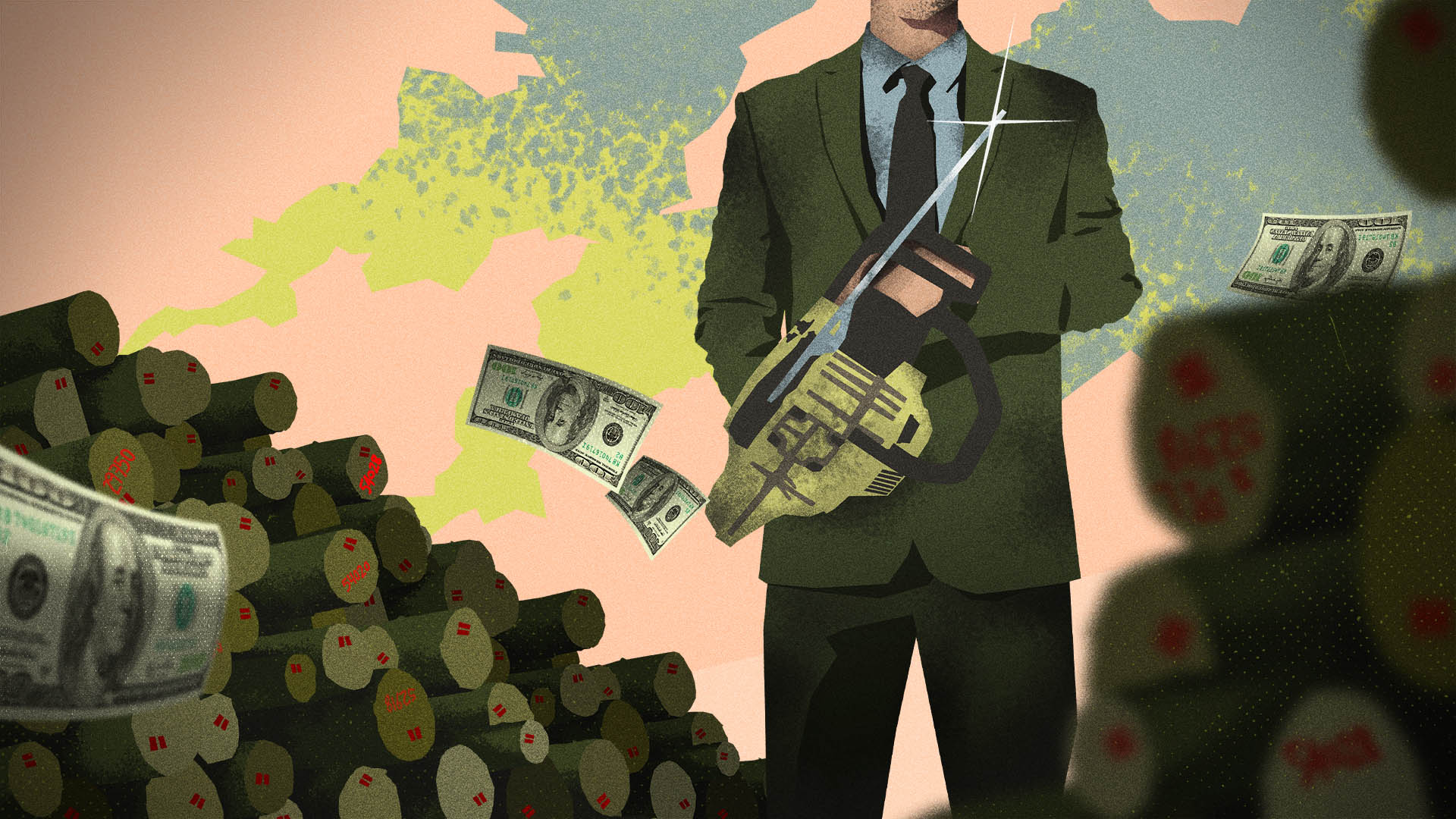MEET THE INVESTIGATORS
Reporters share behind-the-scenes stories from Deforestation Inc.
For this month’s episode of Meet the Investigators, we recorded a special live panel featuring reporters whose investigation has exposed how a system designed to protect the environment, consumers and investors is failing with concerning frequency.
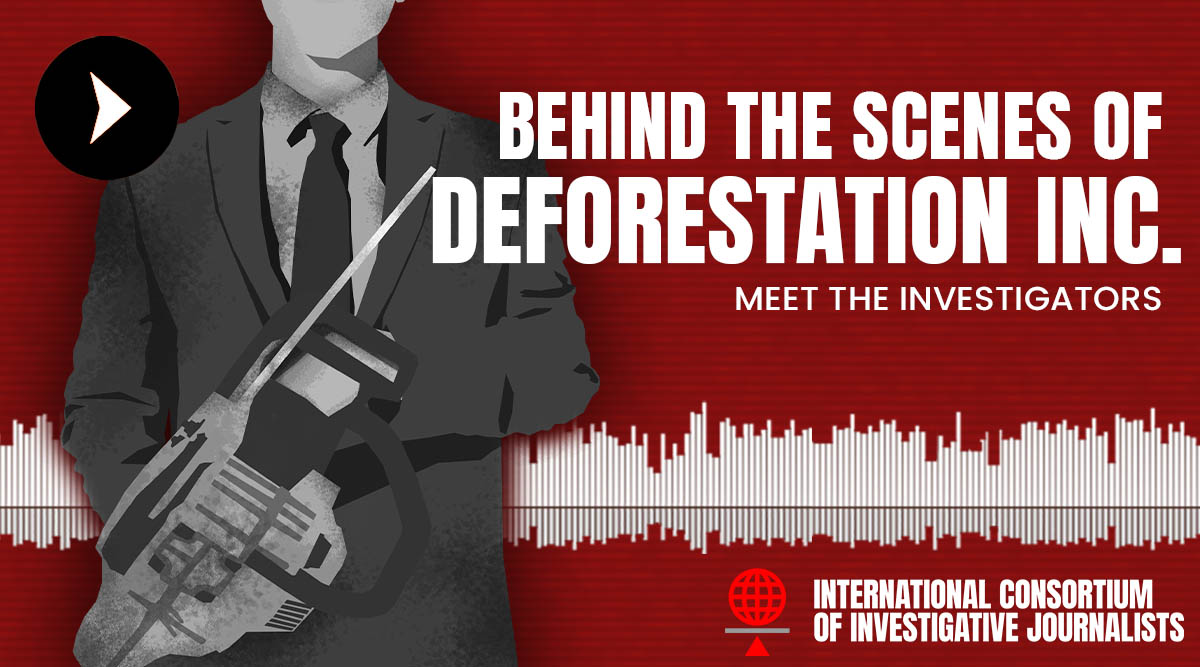
The International Consortium of Investigative Journalists collaborates with hundreds of members across the world. Each of these journalists is among the best in his or her country and many have won national and global awards. Our monthly series, Meet the Investigators, highlights the work of these tireless journalists.
In March, ICIJ and 39 media partners published Deforestation Inc., a global investigation that exposed flaws in environmental auditing and certification programs intended to promote responsible forestry and combat illegal logging and deforestation. For this month’s episode of the Meet the Investigators podcast, we recorded a special live panel featuring reporters who had visited ravaged forests, tracked shipments of timber around the world, and trawled through corporate documents, leaked files and more to uncover the many ways in which a system designed to protect the environment, consumers and investors is failing with concerning frequency.
Reporter Brenda Medina hosted journalists Scilla Alecci, Benedikt Strunz and Krisna Pradipta at this virtual event before an audience of ICIJ’s Insiders — our community of monthly recurring donors. If you would like exclusive invitations to future events like this one, you can find out more and make a donation to support ICIJ here.
TRANSCRIPT
Brenda Medina: Welcome to Meet the Investigators, a podcast from the International Consortium of Investigative Journalists. I’m your new host, Brenda Medina, and I’m a reporter at ICIJ.
This month, we’re bringing you a special episode from a recent event for ICIJ Insiders — a live panel I moderated about our newest investigation, Deforestation Inc.
The investigation found that, due to light regulations, environmental certifications often overlook forest destruction and human rights violations. This live panel, which was exclusive to ICIJ donors, dives into what we found with three key reporters. Let’s get into it.
Medina: Good morning or good evening, everyone, depending on where you’re joining us from. I’m Brenda from ICIJ, and I’m really very excited to host this recording of ICIJ’s podcast Meet the Investigators. This is going to be available later as a podcast. So we’re gonna talk about today our latest investigation at ICIJ. During climate talks in 2021, world leaders pledged to stop forest loss and degradation by 2030. During a nine month period, ICIJ with 140 journalists from 27 countries delved into why and how nations are falling short of meeting that goal.
Today we’re going to talk to three of the journalists who worked on this investigation, which we called Deforestation, Inc. and I’m going to begin by introducing our amazing panelists. First, we have Scilla Alecci, who is an investigative journalist and video journalist from ICIJ, and she’s also the coordinator for our partners in Asia and Europe. Scilla is really the mastermind behind Deforestation Inc. She conceived this investigation and also coordinated the project with 140 journalists while reporting her own stories. Hi, Scilla.
Scilla Alecci: Hello.
Medina: Next, we have Benedikt Strunz. He’s an investigative reporter in Germany’s public broadcaster NDR, where he also coordinates cross border investigations, and also hosts a podcast about organized crime. Hi, Benedikt.
Benedikt Strunz: Hi, everyone.
Medina: And we also have Krisna Pradipta, who is a multimedia journalist and digital media producer at Tempo magazine in Indonesia. Krisna leads Tempo’s interactive and data visualizations desk.
Krisna Pradipta: Hiya.
Medina: Thank you all for joining us today and for telling us a little bit about your investigative work. And we’re going to start with Scilla. Scilla, can you tell us what Deforestation Inc. is about and how you came up with the idea to investigate this topic?
Alecci: So the investigation is, as the name tells us, about deforestation but more specifically about the enablers of deforestation. If you guys are familiar with ICIJ’s work, you know that we are a bit obsessed with looking at systems that are broken, rather than just isolated cases.
So in this case, we wanted to look at all those industries and operators who basically allow companies to keep destroying forests or harming the environment while being certified as sustainable. It started more than a year ago, as I was working on another investigation, the Pandora Papers, also an ICIJ investigation, and I found some documents about KPMG, one of the biggest accounting firms, showing how the firm was working for some South Asian companies accused of deforestation and other abuses.
I thought it was a very interesting thing that I’d never seen before. And then, as I started to look into this, I found this $10 billion industry of environmental auditing firms that basically work for companies in the forestry industry or that produce forest products, and help them certify their products or operations as green, so that these companies can sell their products to consumers that are environmentally savvy, and to investors that are so interested in this new green movement.
Medina: Scilla, and why do you think it is important that we all know this information?
Alecci: Yeah, so when I looked at this, you know, when I started my research, I realized how this was really a global problem. And that’s when I decided to invite all the partners. Initially, we were just a small group of journalists. But then it grew so much. And it became a very big team of 140 reporters in more than two dozen countries. And so the global [climate] crisis obviously affects all of us. And certainly deforestation is one of the leading causes of this.
So it was important for all this cross border team of journalists to look at this problem. And also to let the public, the bigger public, obviously, the international public, know about a system that is really not working. As you said at the beginning, you know, there were so many promises by politicians a couple of years ago. So we, as journalists, wanted to hold these promises to account, understand what was being done, and what was not working.
Medina: Thank you, Scilla. Benedikt, the next question is for you and I want to give some context. So in Germany, the German team reported on a very controversial forestry product that is supposed to be strongly regulated in Europe, and we’re talking about teak wood from Myanmar. Following a political scandal involving this wood in 2018, the German agriculture and food agency promised more controls on teak that enters the country, right? So you and the team looked into whether the government had fulfilled those promises. Can you tell us a little bit about the 2018 scandal and also what your findings show today?
Strunz: Sure Brenda, and I have to go back a bit for the answer. You just stop me if I go too much into the nitty-gritty details, okay? So the scandal you were referring to is about the German navy ship, it’s a sail training ship: Gorch Fock. And Gorch Fock is a very long wooden ship all in white, with white sails and every German naval officer has to do at least a bit of his training on this ship. And since the ship travels all over the world, it is also called the German ambassador and warden. Yeah, all I want to say is the average German is very proud of Gorch Fock.
However, in 2018, it turned out that the Gorch Fock had a big problem, because during the renovation of the ship’s deck, large quantities, a couple of tons of teak from Myanmar were used. And just for those who are not familiar with Myanmar teak, Myanmar teak is a very expensive wood that is specially used in the high end luxury yacht sector, simply because it has good features. One of them is [that] it is very resistant against the sun, another is also resistant against saltwater. And moreover, it looks very beautiful.
The problem is that already at this point in time in 2018, this teak should not have been consumed in Europe because there are already two serious problems with Myanmar teak, also called the King of Teaks. The first problem is that Myanmar is one of the most deforested countries in Asia, also worldwide. And experts believe that very soon, there will be no naturally grown teak trees left in Myanmar, just because they have basically sacrificed for the global yacht industry. And there’s also another problem with this teak, which also existed in 2018: organized criminals are often involved in this trade with Myanmar teak, and some of them are Mafia-style groups. And, moreover, corruption is very commonplace in Myanmar. Especially the second point poses a huge problem for European teak traders, because according to the European timber trade directive, the law that regulates timber trade, every timber trader must be able to document the legal origin of the timber he trades, and that is simply not possible.
So all I want to say, when it became known in 2018 that literally tons of Myanmar teak had been used on our beautiful German military ship, there was great public outrage, at least here in Germany, but not only in Germany. The responsible control authority, the German agriculture and food agency BLE, declared publicly that in future, it would no longer be possible to import teak from Myanmar in accordance with the law. Moreover, they declared that they would take very tough actions against traders who would still trade teak from Myanmar. That was in 2018. And since then, at the latest, it was impossible to import teak in accordance with the law. And that was not only a German position but a European position because all the competent authorities agreed and shared this position.
In 2021, however, the legal situation even became worse because in early 2021, as you all know, the military in Myanmar staged a coup: imprisoned, tortured, and even murdered opposition leaders. And since then, the new military junta is fighting a war against its own people. And because of this military coup, the EU imposed sanctions against Myanmar in the summer of 2021. They also imposed sanctions against one specific company, the Myanmar Timber Enterprise, which is the timber monopolist in Myanmar. And they did so because nearly 100% of the timber trade which is going out from Myanmar is traded via this company, MTE, Myanmar Timber Enterprise. The idea behind this is that the earnings from the teak trade and the timber trade are directly flowing into the accounts of the military junta and are used for the war against its own population and for the suppression of democratic forces there. So Brenda, you asked me what we found out in our investigation, just a small recap: Since 2018, the teak trade in the EU is actually banned, and even more since 2021, if that’s possible. And, moreover, German authorities told us they will fight this trade. And together with ICIJ, and many, many partners we’re able now to find out that the reality is clearly different.
The fact that perhaps shocked me the most in this investigation is that we see that nearly all responsible authorities, customs, the EU Commission and also the industry associations, know that these imports are going on, and I have the feeling that nobody’s doing anything about it.
In the project, we were able to receive confidential investigation documents and process and evaluate various trade statistics, and we’ve spoken to many European authorities. What we see is that, since 2018, many thousand tonnes of teak have continued to enter the EU. And often this trade goes through countries that have less control, like Italy, Greece, Croatia, and in more recent years, Poland. And even the authorities who promised that they would control, have looked the other way. So we see, for example, that even several hundred tonnes of teak continued to be imported into Germany between 2018 and 2020 without the competent authority having the wood confiscated.
What astonished me, really, in this investigation is that we also see that even after the EU imposed sanctions against MTE, the teak and the wood imports continued into the EU. We were able to see that more than three thousand tonnes of Myanmar wood still entered the EU in 2021. And, by the way, a couple of tonnes of that teak or that wood were also traded via Germany.
To point out the fact that perhaps shocked me the most in this investigation is that we see that nearly all competent or nearly all responsible authorities, the competent authorities, customs, the EU Commission and also the industry associations, know that these imports are going on, and I have the feeling that nobody’s doing anything about it. That’s basically our findings.
Medina: Thank you so much, Benedikt. And you mentioned that you got this [confidential] document, you know, to help you with the investigation. Can you talk to us a little bit more about how you figured out in the report that these companies are bypassing regulation. You talked about the third countries that the wood enters from.
Strunz: There are basically different ways how timber or teak from Myanmar, still reach Europe. On the one hand, you can see the origin of the teak is pretty often concealed. And this teak is then simply redeclared, for example, as teak from India. That is one way. But there’s also a much easier way; you already mentioned it. Because, as a couple of authorities of certain EU member states just do not pay too much attention to what is coming into the EU, teak traders are still going on to import their teak via countries like Poland, Italy or Greece.
Actually, there is a loophole in the EUTR. And it is that once the teak arrives [at] the European market, then it can be traded freely without anyone committing a crime, if that makes sense. And if you ask me, how is that possible? Then I would have to say, frankly, that the EUTR and also the sanctions, deliberately provide these loopholes. So it seems to be not a bug, but a feature. And yeah, I have the feeling these loopholes are there [so] that authority can say “We are doing something about the teak trade” but, on the other hand, you can still support your high-end yacht industries. That’s the feeling I had.
Medina: Thank you, Benedikt. Krisna, now I have a question for you. I want to talk about what your team found in Indonesia, which is one of the world’s largest exporters of tropical wood. So the government there established a verification system that is supposed to ensure the legality and sustainability of certain products, and that includes timber. This was done in part to comply with the European regulations that Benedikt is talking about. And according to the reporting at Tempo magazine, how’s that verification system working or not working?
Pradipta: Yeah, so I think like, what Benedikt just said; on paper these systems, they look good, right? It’s a good system on paper. So just a quick primer about the system itself: Essentially, any corporation that wants to export forest resources to overseas from Indonesia, that product, be it timber, be it wood furniture, would need a verified legal certification, right? This certification involves a multi-stakeholder process that involves the government, the timber companies, any production company – so it can be logging companies, it can be furniture makers– third party watchdogs and certification bodies. All of them are working together in order to ensure the product that we’re selling to Europe, to America, to Japan, doesn’t contribute to deforestation.
So that sounds really good, right? But the problem here, and I think it’s similar to what Benedikt is saying, is that there are loopholes everywhere. If we break down the verification process from production, so from logging to production, to putting the timber to factories, where they would be made into other products to export, we found several critical points that are being taken advantage of by various corporations to, you know, I think increase their bottom line, right? These range from falsification of documents, so they would fake the real legal documents, they would say that they’re certified but they’re not… to illegal wood mixing, so they would buy illegal wood from uncertified companies, mix them up in with their woodstock in their factories, and then ship them off to Europe, to Japan, wherever… to even price fixing. So there’s even a case where a certain type of wood was mislabeled as a cheaper alternative, so they don’t have to pay more taxes for that type of wood. Additionally, while enforcement does happen, and you know, governments, the Ministry of Forestry cracks down on corporations that do destroy the environment – there’s one that just got their entire business license removed, and they just disappeared– it’s inconsistent. So reports by watchdog on corporations doing these violations to certification bodies aren’t always acted upon.
We also found systemic loopholes. These loopholes range from how certain corporations can just recertify. So there are some cases where a corporation is proven to have committed environmental violations, social violations, etc., etc. And then they’d have their certifications removed, either by the certification body or the government. And then a couple months later, they would recertify with a different body. And it doesn’t even take a couple of months. In some cases, they would just do it immediately. There are also cases where they would work around the SVLK [Timber Legality Assurance] system. So interestingly, this verification system is only applicable for exports. This doesn’t happen domestically. So the workaround is that they would sell wood domestically to people who are certified, and then get them to buy the illegal wood, and then that would be exported out. So it’s really a shame because this kind of resource tracking program doesn’t happen in Indonesia. Ever since it was made into law by the government, it has definitely taken down the number of illegal logging that happens in Indonesia. But these loopholes kind of weaken the entire system illegally and take away the trust in certifications. The EU connection is really interesting in Indonesia, because this entire system was built, as you said, because of regulation in the EU, right? More recently, we’ve expanded on SVLK because the EU demanded that we do so. One of these expansions in the new EU DDR regulations is that they need to be able to track the wood. So we began incorporating geo locators to our timber. So what I’m really interested in finding out, it comes back to Benedikt’s point — in Indonesia, we do whatever the EU says, right? I don’t know if this will happen. But I feel like if the EU cracks down on greenwashing, as it were, I think the Indonesian government would definitely — I wonder if that pressure would be just enough for the Indonesian government to begin cracking down on these loopholes.
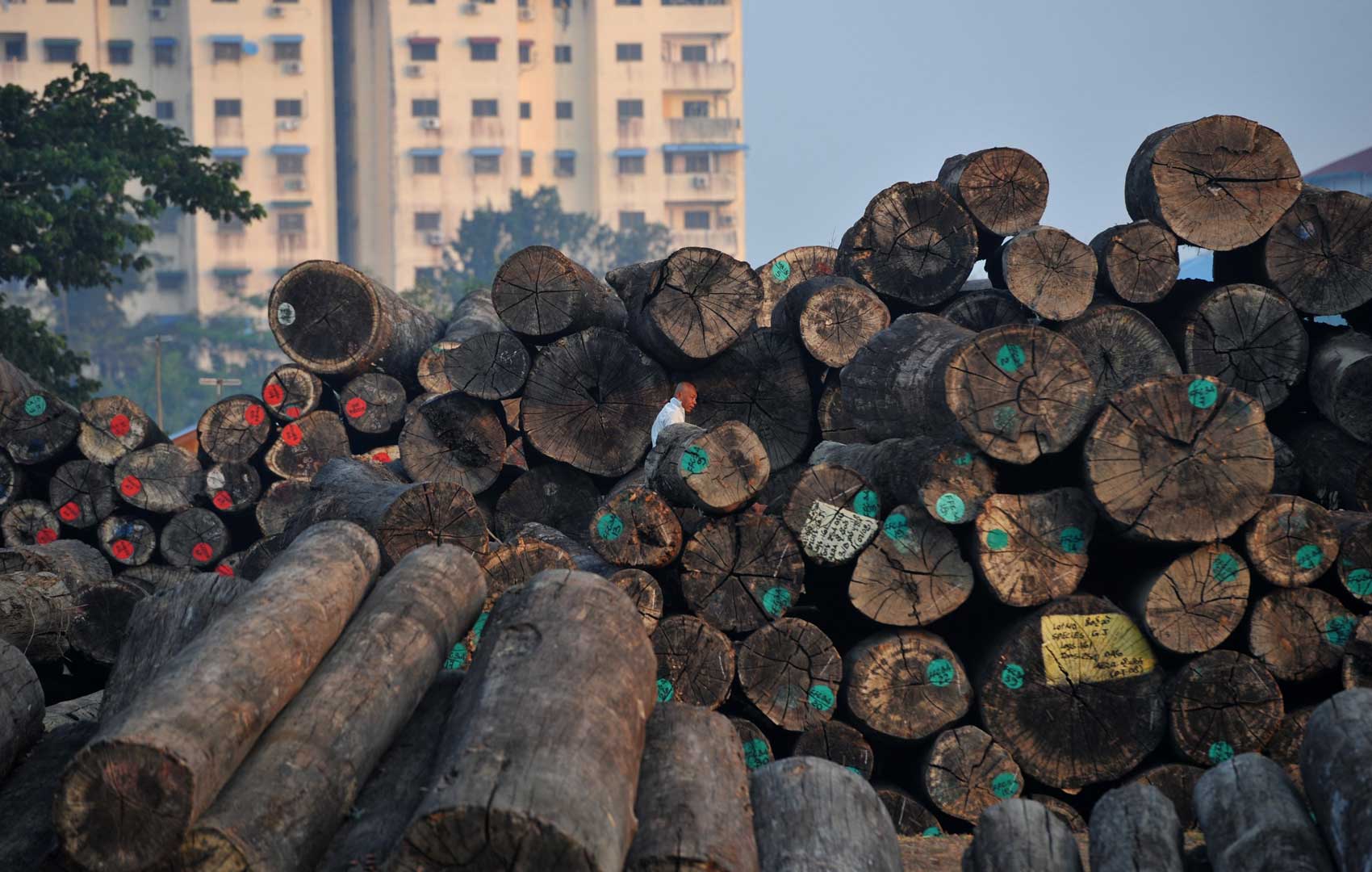
Medina: Thank you, Krisna. And you keep talking about these certification entities or certification bodies. And one of the things Tempo magazine found is that a number of violations by forestry companies were missed, or ignored or overlooked by certification bodies. So can you talk a little bit about the role of the certification entities? Can you talk about the violations that they overlooked?
Pradipta: Sure. So just winding back to the whole system. Certification bodies are one of the key stakeholders in the SVLK certification system. They basically ensure that corporations are following guidelines setup by the government before they’re certified. The power to certify these products as legal lies with the certification bodies, and they are given this power by the Ministry of Forestry and also the National Accreditation Committee. So they do this through audits, right, that involves looking at four specific aspects: preconditions, which is basically paperwork — do you have the correct permits, do you have the correct licenses to operate as a business entity trading on timber? Production — so proving that their product is acquired legally, this is where they usually check out where the concessions are, what the timber production is like, what the sawmills are like, are they within permit bounds, etc., etc. Ecology — proving that the company has done right by the environment. So they’re checking out the production systems, waste management, and whether or not they have sustainably extracted the resource. And sociology — so it’s basically whether or not the corporation has taken care of local people living in the area.
Special audits are also undertaken when the watchdog writes a complaint. So they can give out certifications that are like four or five years, and then they can do a surprise audit in the middle of those, and then they can re-audit you when you recertify. So that’s how the certification bodies work in the system. We found over 100 cases of violations to the guidelines that these auditors had missed. These include all of the preconditions that I told you guys about before. Environmental violations are kind of like illegal logging, incompetent waste management; social violations include conflicts with indigenous communities; and even criminal violations — these are where we put in document falsification, sometimes even violence to indigenous peoples. So one of the cases we picked up involves an Asia Pulp & Paper supplier, Balai Kayang Mandiri (BKM), which has had multiple disputes with the indigenous community in their concession, regarding where they’re at. Inside the concession there is an Indigenous farming area where they produce palm fruit. These kinds of things happen and these kinds of things are also protected within the SVLK system, under the sociology aspect. Under this aspect, the company has to protect them, you know, either give them employment, communicate and kind of help each other out. So this is not happening. The corporation allegedly cleared out the local’s palm fruit plantation, despite discussions regarding the borders of the palm fruit plantation and the concessions not being finished yet. So they’re still kind of discussing about what to do with it. But clearing it out constantly. So conflicts happened three times: the first one in 2018, happened again in 2020, happened again two years later in 2022. The newest conflict is a bit more diabolical because the company allegedly came at night and cleared out the area and then planted their own acacia plants in the village’s plantation. One farmer even had a stroke, after he saw what had happened to his plantation, because these are people’s livelihoods, right? Instantly, it’s just gone, the place where they can generate money to pay off, you know, their children and food and stuff like that.
So, I mentioned before, this conflict itself is clearly a violation of the SVLK guidelines, which protects Indigenous people. Yet the interesting, the very surprising thing is that certification for this company still stands. There was a special audit that was undertaken for BKM by their certification company, a smaller local certification company. And they said that means the system works, right? The watchdog reported the social violations. But then they found… let me read out what they found: They said that the complaint did not reach the standard of proof they needed to take out the certification. So this is the big weakness of certification companies here. They have different interpretations of the guidelines. Sometimes what is found by the watchdogs doesn’t necessarily reach the standard of proof needed to take out the certification by the certification companies. So this is all inconsistent with each other. One company might be super stringent, and that kind of sometimes happened with the international ones. But local certification companies aren’t that stringent with the rules. And sometimes they work together with the companies to see whether or not they can fix it before they have to take the certification away.
Medina: Thank you so much. I was trying to read your stories in English translation. I was very moved by your findings on the violations, especially about the land conflict and displacement. Scilla, remaining on the topic of certifications and these certification bodies, there is this concept that comes up, you know, in many of the stories from deforestation Inc. And it is greenwashing. Can you explain to us what this means in the context of this investigation?
Alecci: Yeah, so just to connect this to what Krisna has found: Our data team has reviewed more than 2,000 environmental violations and also accusations of wrongdoing by companies in the forest products industry. And we have found that in the last 20 years or so, more than 340 of these companies were accused of wrongdoing while they were certified as green. So, our goal in this exercise was to show how these certifications, that are basically green labels that you can see on a lot of these products, sometimes do not correspond with the truth. And for the longest time, governments have closed their eyes to this problem. Now, some agencies, some consumer protection agencies around the world like in Australia and the U.K, and also now in the European Union, they are starting to look at green claims by companies, basically to see whether their statements are true or not. I was just trying to find an example, and just looking around me I have this candy package where you can see there is a label here that says that this package is made with paper that is certified as coming from a sustainable source. And now it will be good to know whether this is true or not, because, as Krisna has shown, and also as many of our partners have demonstrated in their reporting, in a lot of these cases auditors audit companies, but they may not see problems with forestry operations, or they do not investigate enough because a lot of these auditors just look at a small part of the supply chain, instead of looking at the whole chain from the beginning to the end. And a lot of things can go wrong.
Defenders of the certification system have said that this has brought a lot of improvement in countries with very weak forest governance, including in Brazil, etc. But this should not be enough, right? Because it’s a totally voluntary, self-regulated system, which is exactly what we wanted to point out in our investigation — to show how, maybe, there should be more regulation to really help consumers understand when a green claim corresponds to the truth, or not. And we always make a comparison with the more traditional auditing and accounting system where you have a company auditing the financials of a big corporation — obviously, there is a lot of wrongdoing, ICIJ knows it well, but there are also bodies and checks and balances in place where the auditor itself can be monitored in some cases. While, for the environmental industry, you don’t have that. And the ultimate consequence is that a lot of bad environmental practices can continue. So the idea of using that as a solution for global climate change clearly wouldn’t work.
Medina: Thank you, Scilla. And I have another question for Benedikt. You also published a story about illegal logging in Romania, which is home to some of Europe’s most vital forests. One of the sources in your story is a person who claims to have been part of the so-called timber mafia in Romania. Can you tell us what this timber mafia is and how it allegedly operates?
Strunz: The term timber mafia, wood mafia sounds a bit funny, because at first you don’t think that wood and mafia are two things that necessarily belong together, right? But in fact, the trade in illegal timber is the third largest source of income for organized crime groups worldwide. It comes right after drug trafficking and the trafficking of counterfeit products. And I was astonished to learn that Interpol estimates that the illegal timber trade now generates about 50 billion euros per year. So it’s really a huge thing. However, if we look at Europe, you might say that Romania is the country that is most affected by illegal logging. And experts estimate that there, every second tree is illegally logged. And the problem is that Romania is the country where Europe’s last virgin forests are located. So the activity of the timber mafia there is really quite dangerous in terms of sustainability. It really affects all of us. And, according to our research, we talked to former members of the timber mafia in Romania, and we talked to foresters and to politicians there, and we we did some investigations on the ground, and according to this research, I would describe the timber mafia system probably like this: at the center of the system, there are companies that cut timber illegally, and they paid bribes to officials of the state forestry agency Romsilva. And this timber is allegedly also sold in large quantities to Western companies. And many, really many actors profit from the illegal proceeds of this business, including high ranking police officers, judges, politicians, political parties, and even government politicians, at least in the past. So, the timber Mafia, thus, is a kind of pyramid scheme that has created numerous actors with vested interests in this system. I would say that is the main problem why this system is so hard to find, because it’s not new. The problem is known since a couple of years. And another, at least for me, important point is that the first tool of choice of the timber mafia is obviously corruption, right? But where corruption fails, the timber mafia uses violence, even murder. And in recent years, six murders of foresters have been registered in Romanian forests, and several hundred attacks on foresters, NGOs, but also on journalists. So to sum it up, the Romanian wood mafia is really a challenging problem that is still, or at least was, underreported.
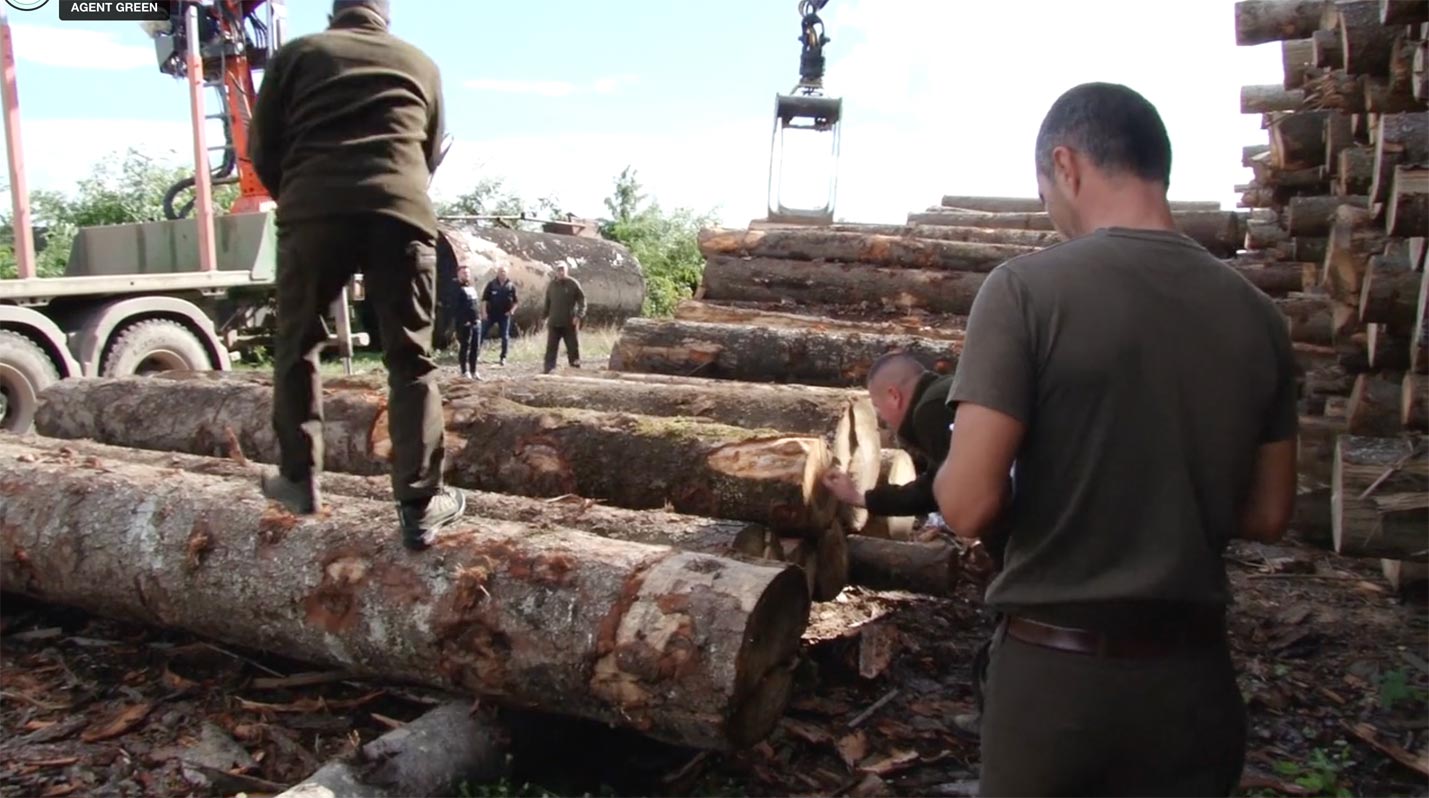
Medina: Benedikt and what is this timber used for? Or, you know, where is it going? What is being made with it?
Strunz: It’s always hard to find concrete proof. But what you can say, in any case, is that the Romanian economy has no great demand for wood. So the greatest demand for wood is generated by Western companies, especially by Austrian companies, that have their own sawmills based in Romania, to make pellets, to make wooden boards, and to make cheap furniture from these trees. I’m afraid that a lot of illegally-logged wood ends up in such products, which are sold all over Europe, but also worldwide. And yeah, I’m not alone with this opinion. And there is also proof. And we could also prove that at least some illegal wood went to one of these big companies.
Medina: Thank you. Krisna, I have a question for you. Because I see this as a challenge for these dense, you know, these investigations with so much information. And as a digital producer, I would like to hear from you about presenting them in a way that is audience-friendly. So how do you ensure that the public can make sense of all this data and the jargon, the technical language in projects like Deforestation Inc. and others?
Pradipta: It’s like, from crime to nerdery. So we try to make data and technical language as simple to understand as possible. So this is a special challenge, specifically in Indonesia, because environmental reporting here involves a lot of complicated language and jargon, because there’s a lot of stakeholders, there’s a lot of programs from the government, there’s a lot of acronyms. So there’s SVLK, there’s SIPPUHH, there’s THEL. So I have to parse through all that. I made — I don’t have it with me right no, but during the course of this investigation, I actually have a little glossary that I keep around when I was like, looking at past reports from Tempo — yeah, that’s it — that’s key to these kinds of investigations, because it’s just really hard to parse through. So we try to home in on the effects rather than getting mired in by the red tape, which is basically all that kind of government jargon and nonsense. An example is when we, in my Tempo story, we discussed critical points. So we simplified that process. We had a graphic that has like three different kinds of processes in the wood industry. So that was actually five. Right? It’s five phases before export, and had little kind of critical points that kind of just jumbled with each other. It’s like falsified documents here, but also here. And the difference is literally where the wood is being kept. Right? Falsified records that are for wood that is being kept in a warehouse is, I don’t know why is being kept separately from falsified documents about wood being kept in log ponds. So we just had to whittle that down to something that the audience can just really connect to instantly. I think the Tempo story was returned to me like three times from the editor, because I just kept on going “so as we all know, SVLK is…” no, but the people don’t know that, right? So I had to just explain every single thing in the simplest way possible.
For data visualizations, we tried to think laterally in terms of how visualizations can add value to the story. For example, we decided to do a dot visualization, so that people can see how many companies are implicated with how many cases, right? So if you see in the Tempo’s page, it’s a stack of that, it’s like 120 cases that we have parsed through. So originally, it was like 160, we removed some cases because of lack of detail, or there are letters that are not going to the certification bodies, so we just took those out. So in press view, 120 cases might not seem a lot. But I think 22 out of 33 certification bodies in Indonesia are implicated in that visualization. So that’s more than half of certification bodies that have a track record of missing violations of the guidelines that they are supposed to check. And even though these violations can be something as simple as you know, they did not accurately publicize the results of their audits, these things still kind of take away trust from the entire system. So that clearly adds value to the story. So that’s kind of the thought process that we have in our approach to this thing.
Medina: Thank you. Now I have a question for all three of you. Some of the companies featured in the investigation produce the raw material to very basic products that we use everyday, like toilet paper, coffee filters, furniture, the benches we sit on in the park, and doors and windows. With this in mind, I want to ask you as a journalist, but also as a consumer, what’s your biggest takeaway from your findings from this investigation? Scilla, you want to start?
Alecci: Well, two things. One is that we are not aware enough of what’s around us, what we use and how we use it. So this was also eye-opening for me just as a consumer as I said, not only as a journalist. I saw [the] question asking about, maybe we should raise more awareness about these issues, because people sitting at a table somewhere in a small village, maybe don’t know that they’re actually sitting at a table that has been coming from illegally logged wood or something. Obviously, there have been a lot of reports by great environmental groups on this topic before, but I think the strength of the investigation was the globality, the global team, and looking at this topic at the same time together and really finding problems across the board across the world and the same issues over and over again. So this was quite surprising for me.
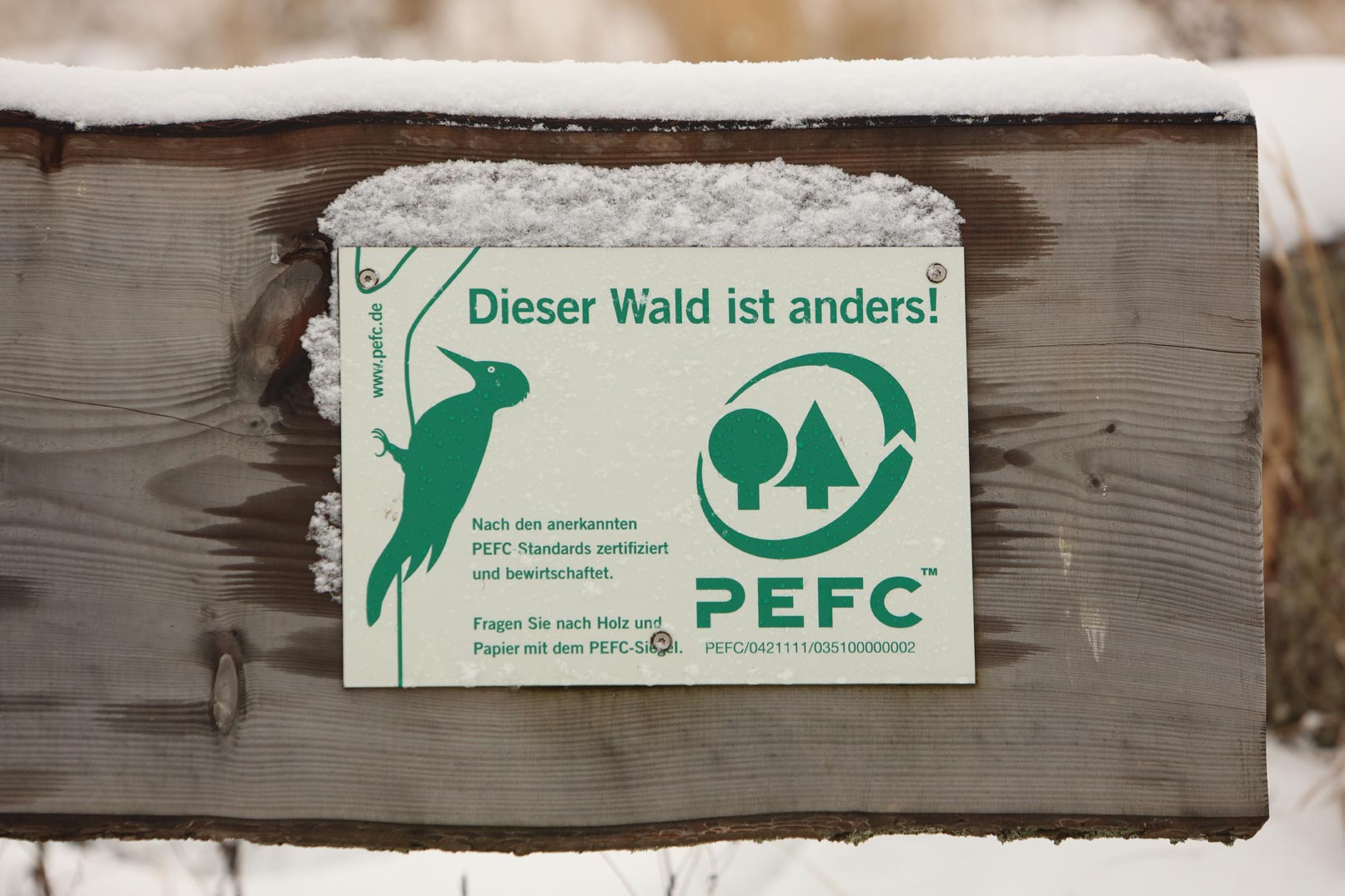
Medina: How about you, Benedikt? What’s your takeaway?
Strunz: I think the greatest lesson I’ve learned is probably that the forest is our life insurance in the climate crisis, right? And I think we should actually take very good care of this insurance and continue to invest in it. But we’re not doing that. Instead, we’re like, tearing small pieces out of our insurance and burning it as pellets, biomass or consuming it as chipboard or whatever. And frankly, that is not really clever. And moreover, I learned that the European Union should definitely work on the UTR and on its sanctions, because otherwise, the loopholes are just too big. And these regulations are still an incentive to trade illegally cut wood.
Medina: Thank you. And how about you, Krisna?
Pradipta: As a consumer, I just don’t believe in green labels anymore. [inaudible] It’s just like “it’s sustainable,” and I’m just like, yeah, sure. But I think, as a journalist, though, I’m more surprised about how the game is so similar across the world, because Tempo has launched numerous investigations about corporations doing this illegal certification stuff, you know, that BKM report was out last month. But we had reports about that coming in 2018, 2019. It’s like a yearly thing for us. We always stopped short, like “so these are illegal wood going to Europe,” but we don’t know who is importing it. We’ve contacted these companies, and they would be like, “yes, we have our own investigation and we will get back to you.” But turns out, it’s the same everywhere in the globe, like things are happening in Asia, falsification of documents or crimes that are also happening in Germany, in America, in Brazil, right? So I was just very surprised about how global this is and how it really is similar, the same playbook used over and over again in different companies, everywhere in the world.
Medina: Thank you. So what has been the response to the stories from governments, authorities, certification bodies, you know, the companies that purchase this raw wood — has there been any reaction? Scilla?
Alecci: The certification schemes that we talked about in the investigation, they all said that they are basically better than having nothing. It’s good to have a voluntary system. And we’ve got some responses in the Netherlands by a politician that urged a deeper investigation into the use of teak from Myanmar. You know, and a lot of people, politicians, I guess, asking how this is possible. Like the question that Benedikt asked before. We have, you know, in Europe, we boast of being some of the strictest regulators, we have rules and sanctions, but then everything happens. So why?
One thing that I would be curious about will be to see how the European Commission, at the end of this month, will frame their green claims initiative. They are working on a directive to stop greenwashing. So I’m really interested in looking at how they will maybe make use of our findings to develop more sophisticated laws.
[Editor’s note: The “Green Claims Directive” draft was published shortly after this event]
Medina: Okay, how about in Germany or Indonesia? Any reactions?
Strunz: One nice reaction is that one day after our investigation was published, a high-ranking Romanian police officer was arrested who allegedly took 300,000 euro bribes from an alleged criminal forest company. So that is nice, but it’s not much. I know that in Germany, there are investigations going on against three enterprises we covered who imported timber, teak from Myanmar, and I know that the topic Scilla just mentioned on the EU level, the discussion of how is it possible that still Myanmar teaks is coming into the European Union is also a topic in the environmental ministry in Germany. There is a lot of discussion going on. But I think it’s too early to see what is coming out. But I mean, we are definitely very much interested. We’re on it.
Pradipta: In Indonesia, the National Accreditation Committee, which is the government organization that handles sort of certifying the certifiers wants to talk to us, I think this Friday. So there might be a follow up comment that will link to the story. So, check back soon.
Medina: Thank you, Scilla, Krisna and Benedikt for sharing all this information with us. And thank you, everyone for joining us.
Medina: We hope you all enjoyed this episode! This live panel, and access to events like this, are one of many benefits offered to ICIJ’s Insiders — people who make regular donations to ICIJ.
Insiders get regular sneak peeks behind the scenes of ICIJ investigations, and get the opportunity to attend live events and chat with reporters. To find out more, go to icij.org/donate.
Thanks for listening, I’m Brenda Medina… we’ll be back to regular programming next month.
